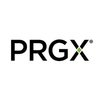
i
Beinex
Filter interviews by
Beinex Data Engineer Interview Questions and Answers
Beinex Data Engineer Interview Experiences
1 interview found
I applied via Recruitment Consulltant and was interviewed before Sep 2023. There were 2 interview rounds.
(2 Questions)
- Q1. He asked mainly on Databricks
- Q2. Delta lake was 2nd topic which interviewer was focusing
(2 Questions)
- Q1. Salary Expectation
- Q2. Mainly salary negotiation was happened
Interview Preparation Tips
Interview questions from similar companies

(3 Questions)
- Q1. What is index and types of index
- Ans.
An index is a data structure that improves the speed of data retrieval operations in a database.
Types of indexes include clustered index, non-clustered index, unique index, and composite index.
Indexes can be created on one or multiple columns in a table.
Indexes help in quickly locating data without having to scan the entire table.
Examples of indexes are primary key indexes, foreign key indexes, and secondary indexes.
- Q2. What is SCD and its type
- Ans.
SCD stands for Slowly Changing Dimension, which is a concept used in data warehousing to track changes in data over time.
SCD Type 1: Overwrites old data with new data, losing historical information.
SCD Type 2: Keeps multiple versions of the same record, each with a different timestamp.
SCD Type 3: Maintains separate columns for current and previous values, limiting historical data tracking.
SCD Type 4: Uses separate hist...
- Q3. Tell me the process of data pipeline
- Ans.
Data pipeline is a series of processes that collect, transform, and load data from various sources to a destination for analysis.
Data ingestion: Collecting data from various sources like databases, APIs, logs, etc.
Data processing: Cleaning, transforming, and enriching the data to make it usable for analysis.
Data storage: Storing the processed data in a data warehouse, data lake, or other storage solutions.
Data analysis...

(3 Questions)
- Q1. What is index and types of index
- Ans.
An index is a data structure that improves the speed of data retrieval operations in a database.
Types of indexes include clustered index, non-clustered index, unique index, and composite index.
Indexes can be created on one or multiple columns in a table.
Indexes help in quickly locating data without having to scan the entire table.
Examples of indexes are primary key indexes, foreign key indexes, and secondary indexes.
- Q2. What is SCD and its type
- Ans.
SCD stands for Slowly Changing Dimension, which is a concept used in data warehousing to track changes in data over time.
SCD Type 1: Overwrites old data with new data, losing historical information.
SCD Type 2: Keeps multiple versions of the same record, each with a different timestamp.
SCD Type 3: Maintains separate columns for current and previous values, limiting historical data tracking.
SCD Type 4: Uses separate hist...
- Q3. Tell me the process of data pipeline
- Ans.
Data pipeline is a series of processes that collect, transform, and load data from various sources to a destination for analysis.
Data ingestion: Collecting data from various sources like databases, APIs, logs, etc.
Data processing: Cleaning, transforming, and enriching the data to make it usable for analysis.
Data storage: Storing the processed data in a data warehouse, data lake, or other storage solutions.
Data analysis...

I applied via Naukri.com and was interviewed in Apr 2024. There was 1 interview round.
(4 Questions)
- Q1. What is excel? How it is work.
- Ans.
Excel is a spreadsheet program used for organizing, analyzing, and storing data in tabular format.
Excel is part of Microsoft Office suite.
It allows users to create tables, charts, graphs, and perform calculations.
Data can be entered manually or imported from external sources.
Formulas and functions can be used to manipulate data.
Excel is commonly used for financial analysis, budgeting, and data visualization.
- Q2. How to work word?
- Ans.
To work with words, one must have strong typing skills, attention to detail, and knowledge of data entry software.
Practice typing regularly to improve speed and accuracy.
Use spell check and grammar tools to ensure accuracy.
Familiarize yourself with data entry software such as Microsoft Excel.
Organize and prioritize tasks to efficiently input data.
Double-check entries for errors before submitting.
Seek feedback and train...
- Q3. How to work in ms excel? Benifit to speak.
- Q4. What is microprocessor?
- Ans.
A microprocessor is a small electronic device that functions as the central processing unit of a computer.
Microprocessors are made up of millions of tiny components like transistors and resistors.
They execute instructions and perform calculations for various tasks.
Examples of microprocessors include Intel's Core series and AMD's Ryzen series.
Interview Preparation Tips
Skills evaluated in this interview

Basic questions for freshers
More focus on the participation and collective contribution of candidates along with communication skills.
(1 Question)
- Q1. DSa, DBMS, joins, and other basic c, c++ questions
(1 Question)
- Q1. Interests hobbies Co-curricular activities and such related questions

I applied via Campus Placement
Basic questions related to time, distance etc. speed is the most important part for this.
Normal group discussion based on a particular topic
(1 Question)
- Q1. They will test your basic knowledge in programming language and some coding
(1 Question)
- Q1. Behavioural questions

I applied via campus placement at Lovely Professional University (LPU) and was interviewed in Sep 2023. There were 3 interview rounds.

QUESTIONS WERE MODERATE WHERE WE HAVE TO DO 45 IN 50 MINUTES
SQL QUERY AND ONE CODING QUESTION
Interview Preparation Tips


I need to clean the data which include lot of junk in it and visualization transformation etc
(1 Question)
- Q1. Technical Questions ware asked by the project lead
(1 Question)
- Q1. Salary discussion and the shift details and stability analysis
Interview Preparation Tips

I applied via Referral
Interview Questionnaire
1 Question
- Q1. Tell me about yourself.
Interview Preparation Tips
Beinex Interview FAQs
Tell us how to improve this page.
Beinex Interviews By Designations
- Beinex Associate Software Engineer Interview Questions
- Beinex Content Specialist Interview Questions
- Beinex Data Engineer Interview Questions
- Beinex Lead Generation Executive Interview Questions
- Beinex Project Coordinator Interview Questions
- Beinex QA Engineer Interview Questions
- Beinex Software Developer Interview Questions
Interview Questions for Popular Designations
- Senior Data Engineer Interview Questions
- Big Data Engineer Interview Questions
- Software Engineer Interview Questions
- Senior Software Engineer Interview Questions
- Database Admin Interview Questions
- Data Analyst Interview Questions
- System Engineer Interview Questions
- Associate Software Engineer Interview Questions
- Show more
Beinex Data Engineer Interview Process
based on 1 interview
Interview experience
Data Engineer Interview Questions from Similar Companies
Beinex Data Engineer Reviews and Ratings
based on 1 review
Rating in categories
|
Software Engineer
45
salaries
| ₹2.6 L/yr - ₹9 L/yr |
|
Senior Software Engineer
15
salaries
| ₹5.3 L/yr - ₹13.8 L/yr |
|
Software Developer
12
salaries
| ₹2.9 L/yr - ₹9 L/yr |
|
Associate Software Engineer
11
salaries
| ₹2.6 L/yr - ₹3.6 L/yr |
|
QA Engineer
9
salaries
| ₹3.3 L/yr - ₹5.2 L/yr |

TCS

Infosys

Wipro

HCLTech
- Home >
- Interviews >
- Beinex Interview Questions >
- Beinex Data Engineer Interview Questions















